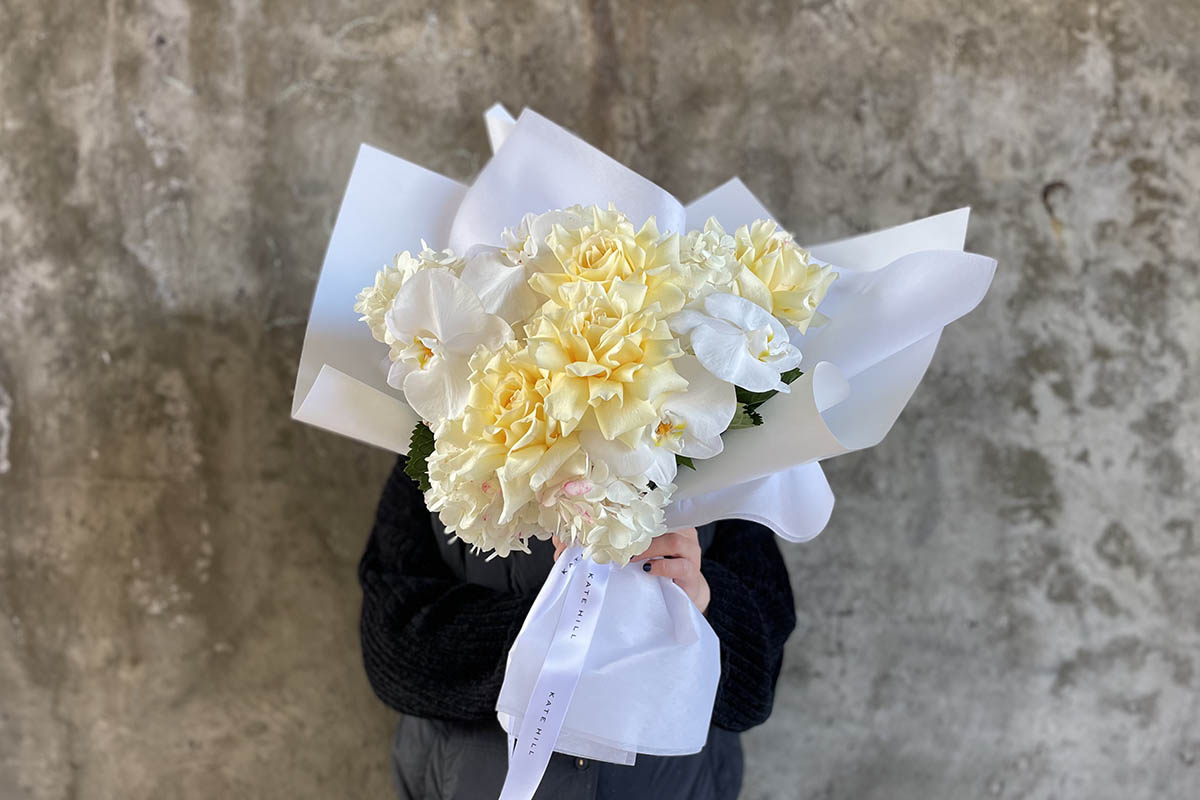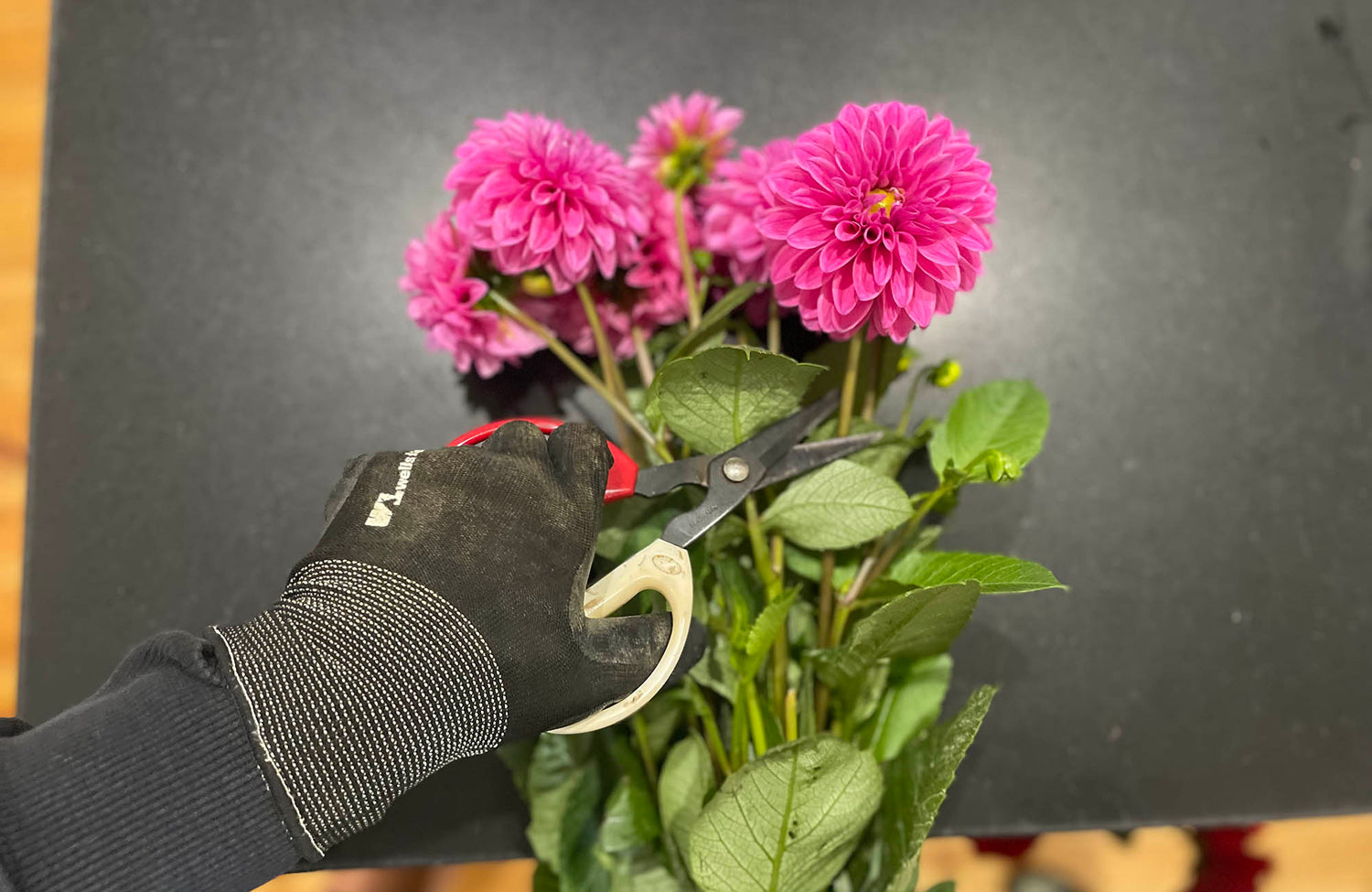Have you ever found yourself sneezing during springtime and thought “must be hay fever”? Sometimes we attribute allergy and illness to flowers without knowing whether or not they’re really the cause. Keep reading to learn the different types of hay fever that can impact you, the causes, and which flowers are best if you tend to get allergies.
What are the different types of hay fever?

There are two types of hay fever that can impact you. The first type of hay fever is seasonal and occurs when plants pollinate. The second type of hay fever occurs due to a variety of factors ranging from irritants in the air to chronic health conditions to odours. This is the nonallergic type of hay fever that shares symptoms with the first type but occurs year-round.
Do flowers cause hay fever?

The first type of hay fever is the type most relevant to this discussion as it relates to pollen. If you’re “allergic” to flowers, chances are you’re actually allergic to the pollen that they’re producing. Pollen allows flowers to reproduce, but when this fine dust is stirred into the air it can have an adverse reaction with your body.
Hay fever is a condition that occurs due to pollen. It’s what happens when symptoms become agitated and manifest into runny or stuffy nose, itchy or watery eyes, an itchy throat, and couching. That said, grasses, trees, and ragweed are the most common types of pollen allergies among hay fever sufferers. While flowers can be a cause since they produce pollen, they are often not the primary source.
What flowers are best (and worst) for allergies?

Everyone can love flowers! Even if you tend to get a bit sniffly or red-eyed around springtime, that doesn’t mean that flowers aren’t for you. It just means that you haven’t been enjoying the right kind. Finding the right blooms is well within your reach as long as you have the proper knowledge.
That said, if you know that you’re impacted by hay fever, there are some flowers that will cause you less angst than others. Here’s what you should know.
- Only male flowers produce pollen
- Any flower in the Asteraceae family is good to avoid (think daisies, chrysanthemums, and sunflowers)
- Wildflowers like pigweed, goldenrod, and jasmine vine also tend to cause issues
- Baby’s breath and chamomile are common flowers that those with allergies tend to have trouble with
So, which flowers are safe?

If some of your favourite flowers were mentioned above, never fear! There are still plenty of flowers out there that you can enjoy without sneezing constantly. One of the largest families of flowers – the orchid family – is a safe bet for you. The lilies also provide options with fewer irritants. Keep reading for an exhaustive list that can help you maintain your love for flowers while maintaining your allergies simultaneously.
- Geranium – produce little pollen
- Hydrangea – produce very little pollen
- Daffodil – produce very little pollen
- Iris – produce heavy pollen that is trapped in the long stems
- Lily – heavy pollen carried by insects, strong fragrance that can be too much for some with allergies
- Snapdragon – petals enclose the stamen to trap pollen inside
- Tulip – produce very little pollen
- Zinnia – in the daisy family but better for allergy sufferers overall
- Orchid – produce very little pollen
- Peony – layers of soft petals trap pollen
- Rose – self-pollinating flowers, allergen-free, don’t generate airborne pollen
Stick to these for yourself or a friend who feels the effects of pollen but loves the beauty of flowers surrounding them!
Final thoughts
While you may have thought that flowers were at the root of all your allergy woes in the past, you now have new information on hay fever that can change how you look at these blossoming beauties. Seasonal hay fever is indeed caused by pollen, but it is more commonly caused by grasses, trees, and ragweed than it is your favourite bouquet. That said, if you’re especially prone to a runny nose and itchy-watery eyes around flowers, there are plenty that can help you navigate these challenges. Look for flowers in families like the orchid or lily that produce very little pollen. There are also flowers that have petals that trap pollen rather than releasing it. And if all else fails, you can always get yourself a nice bouquet of roses!
Photo credits from top:
Matthew Henry
Ryan Bruce
Ryan Bruce
Matthew Henry
Amanda Kirsh





